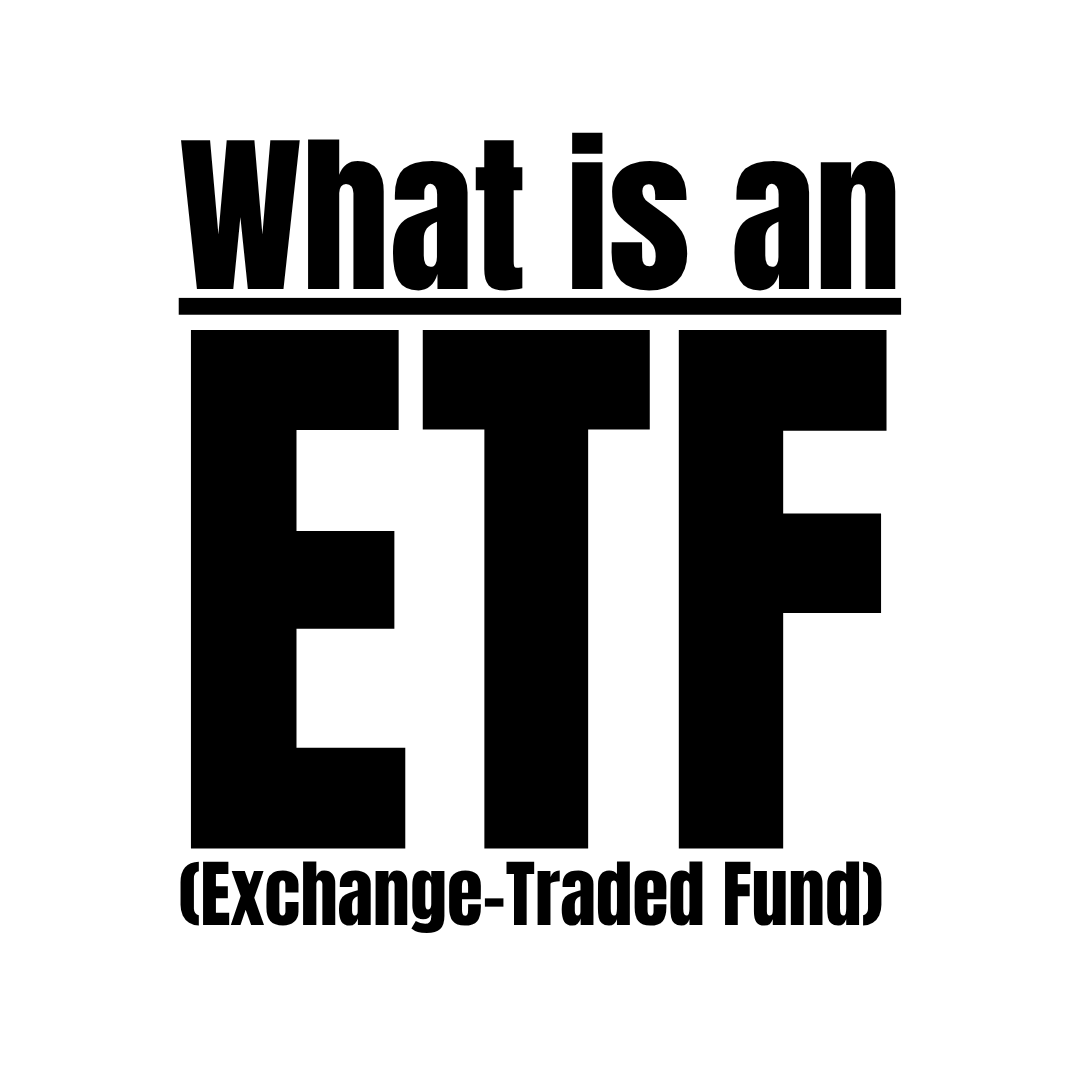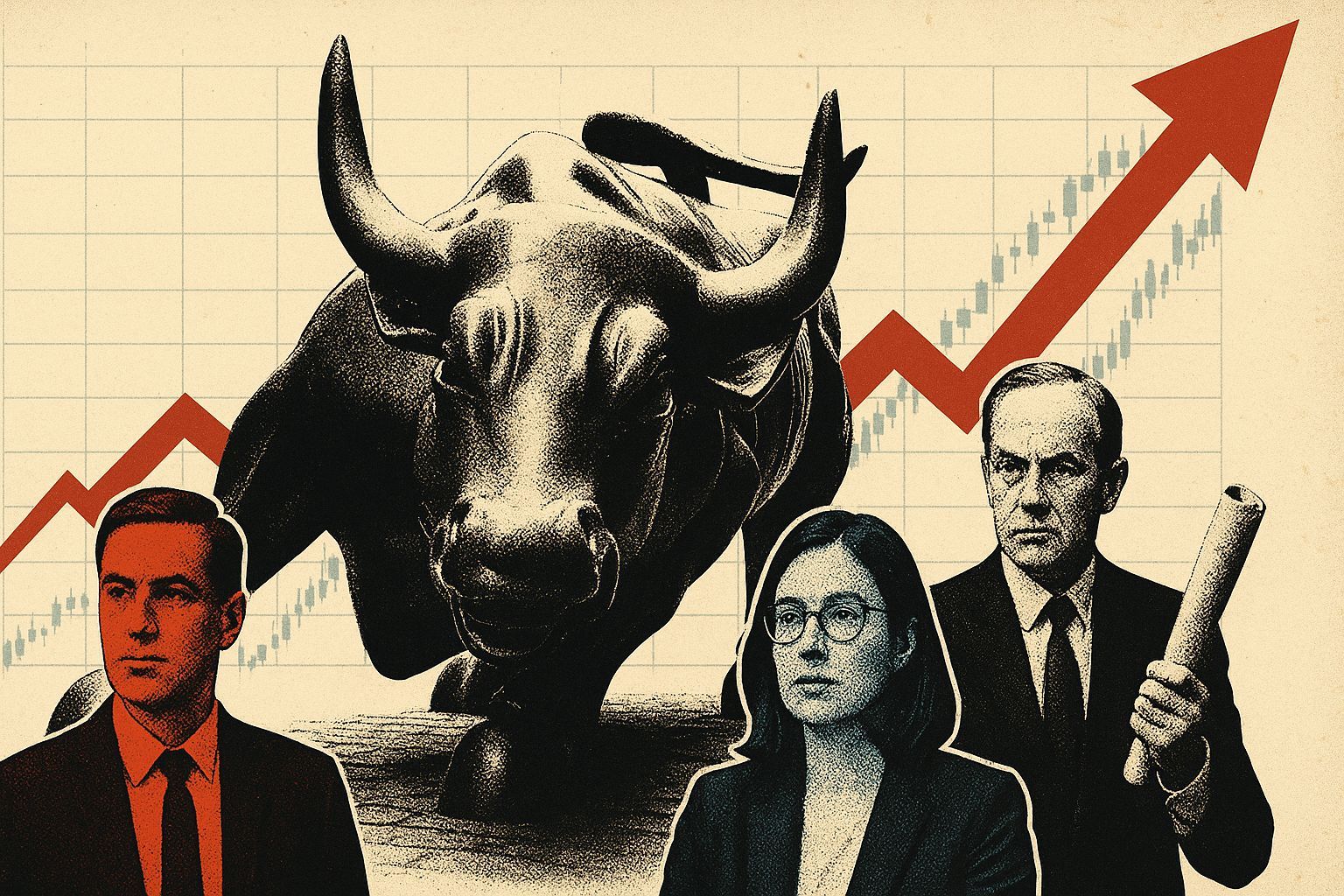Here’s how this works…
Each week we’ll introduce you to one new investing term that you’ll need to know if you want to start investing.
Then we’ll provide a summary of the past week’s financial news and explain why it’s relevant to you as a beginner investor and, more importantly, how you can use this knowledge to your advantage.
So, let’s get cracking!
TERM TO LEARN

AN ETF (EXCHANGE-TRADED FUND) IS A BASKET OF SECURITIES (LIKE STOCKS, BONDS, OR COMMODITIES) THAT TRADES ON AN EXCHANGE LIKE A SINGLE STOCK:
They blend mutual fund features (pooled investments) with the ability to trade on stock exchanges throughout the day.
Most ETFs track an index (like the S&P 500), aiming to match its performance.
They offer diversification by holding multiple securities in one investment.
They provide easy access to various markets, sectors or, asset classes in a single trade.
INVESTMENT NEWS FOR BEGINNERS
AI frenzy isn’t a bubble - at least not yet.

Experienced investor Howard Marks, co-founder of Oaktree Capital Management, was interviewed about the recent surge in artificial intelligence (AI) stocks. He explained that while prices for these stocks are currently high, the market isn’t out of control and has not reached the "bubble" stage seen in past financial manias.
Why this matters to you…
AI-related companies (like those making computer chips or software) have seen their share prices surge. This means many investors are betting big on the future of AI.
Soaring valuations make these stocks potentially more risky, because prices could fall if optimism fades.
Learning to spot signs of a bubble helps beginners avoid big losses.
What you need to do…
Price increases driven by hype, rather than solid business performance, can signal risk. Avoid investing in stocks just because they’re popular.
Focus on companies with real products, earnings, and strong technology — not just those riding the AI wave.
Past cycles show that revolutionary technology can change the world, but many companies in a "hot" sector don’t survive. Be selective and patient.
The S&P 500 is up 83% as the bull market turns 3 years old.

The S&P 500, a major index that tracks the value of 500 large US companies, has risen 83% since the current "bull market" began on October 12, 2022. A "bull market" means a period when stock prices are generally going up. This one is now three years old. Historically, US bull markets last about five years, so experts suggest this one could keep going—unless the economy falls into a recession.
Why this matters to you…
It shows that stock markets move in cycles—periods of growth (bull markets) and declines (bear markets). Understanding where we are in the cycle can help you set realistic expectations and strategies.
There can be sudden drops (like the tariff news in April 2025) even during overall good times. It's normal for the market to have ups and downs.
That said, the rally is slowly including more companies, not just the tech giants.
What you need to do…
Don't just put your money into the companies that have gone up the most recently (like tech stocks). Consider spreading investments across different types of companies and sectors.
Learn how interest rates set by central banks affect markets. Lower rates usually mean it's cheaper for companies to borrow and invest, helping stocks.
You don’t need to wait for a "market crash" to start investing. Consistent investing (like monthly contributions) is a proven way to build wealth over time.
Bank of England’s Taylor: High rates could push UK into recession.

Alan Taylor, a member of the Bank of England's Monetary Policy Committee (MPC), warns that if interest rates stay high for too long, the UK could slip into a recession — a period when the economy shrinks, people lose jobs, and companies struggle. Taylor suggests that the current high borrowing costs may slow economic growth too much, causing negative effects that will be hard to fix. He also predicts that inflation, which is how fast prices are rising, may fall below the Bank of England's target by late 2026, potentially hurting the economy further.
Why this matters to you…
A recession usually means company profits shrink and stock prices often fall, affecting investor portfolios.
If inflation falls below target levels, it can signal weak economic demand, which might reduce corporate earnings growth.
Divergence among Bank of England policymakers on interest rates shows uncertainty in economic direction, which can influence market confidence.
What you need to do…
Watch Bank of England announcements as changes can affect loan rates, mortgages, and investment returns.
In uncertain economic times, having liquid assets or bonds can help protect your portfolio.
Understanding inflation, recession, and interest rates will help you make smarter investment decisions over time.
Thanks for reading this sixth edition.
Between talk of a possible AI bubble, the bull market gathering pace and speculation about the potential for recession in the UK, it can be hard to keep your bearings.
But we promise to try and keep you on the right path.
Because it would be rude to keep this knowledge to ourselves.
So, join us again next week so that we can continue to un-fuddle the befuddled.
